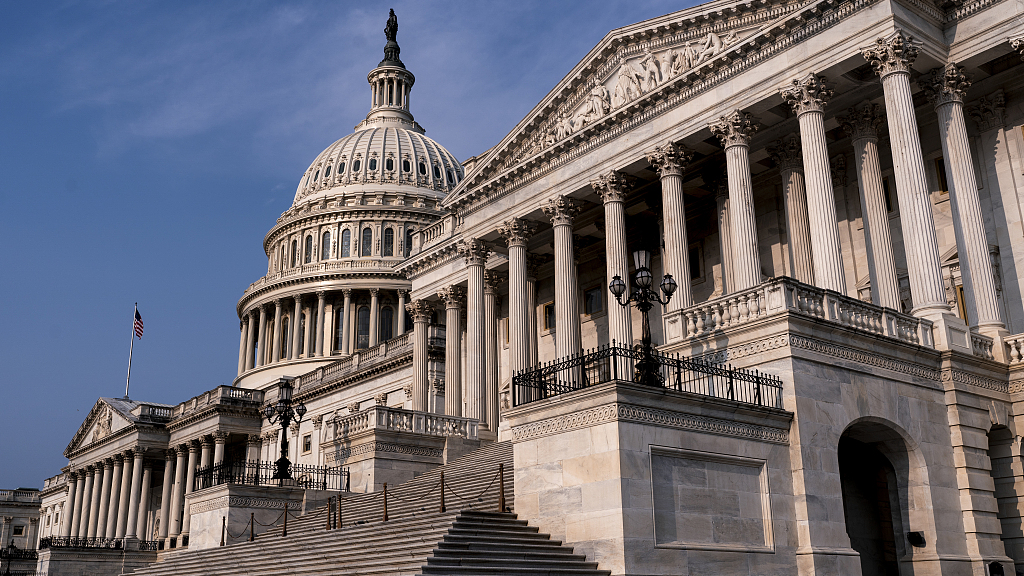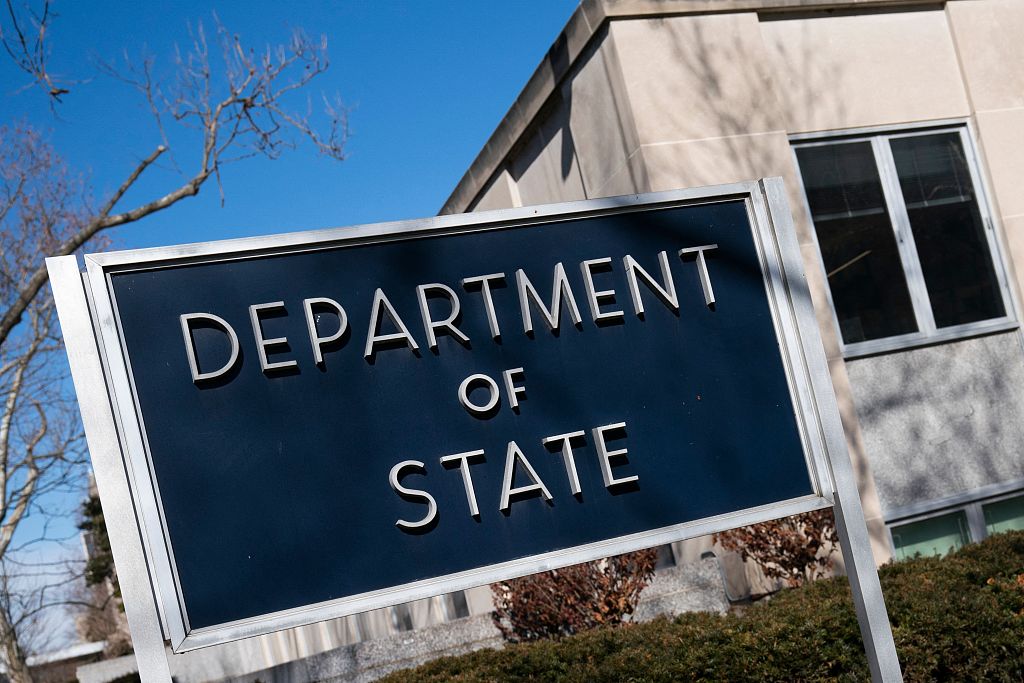
The Capitol is seen in Washington, D.C., U.S.,May 24, 2023. /CFP
The Capitol is seen in Washington, D.C., U.S.,May 24, 2023. /CFP
Editor's note: Hamzah Rifaat Hussain, a special commentator on current affairs for CGTN, is a host for ThinkTech Hawaii. The article reflects the author's opinions and not necessarily the views of CGTN.
The U.S. State Department's Global Engagement Center Special Report accuses China of using a combination of tactics to create a world in which it seeks to "control" the flow of critical information. Without providing any evidence beyond passing references to Chinese applications, accounts and media outlets, the report blatantly stated that China is pouring "billions of dollars" into reshaping the global world order and attempts to "bend the will of multiple nations to Beijing's advantage. "The absurdity of these myopic claims and the findings of the report are both scathing and unfortunate, and demonstrates that the United States is once again maliciously demonizing China despite its constructive influence across the globe.
If examined closely, the report belies actual facts on the ground. Firstly, the arguments presented are predilections of China being an aggressive state which influences decision making in countries where their own sovereign economic and security interests become subordinate to Beijing's foreign policy priorities.
Had that been the case then the results of the 2023 wide-ranging Open Society Barometer Survey would not have indicated that 45 percent of respondents in the developing world considered China's rise as having a positive impact on their country. The survey is one of the largest studies on global public opinion regarding human rights and democracy ever conducted and consists of interviews with over 36,000 people in 30 countries between May and July 2023.
The study conducted by the Open Society's Foundation also indicated that 76 percent of respondents in countries such as Egypt, Saudi Arabia, Pakistan and Ethiopia expressed a favorable view of China's rise. Had China eroded sovereign decision making as suggested by the State Department's report, public sentiment in the developing world would not have been in Beijing's favor.
Secondly, as stated by Liu Pengyu, a spokesman for the Chinese embassy in the U.S., "A quick look at its [the report's] summary is enough to know what it is about: heightening ideological confrontation, spreading disinformation, and smearing China's domestic and foreign policies," which have consistently worked towards and vouched for peaceful development, regional integration and international diplomacy to take hold in the international system.
Also, if the United States is warning its allies against the fallacy of China spreading disinformation, then pro-China sentiment amongst its partner countries on continents such as Africa would suggest otherwise. According to the British based YouGov-Cambridge Globalism Project, African states overwhelmingly stated that China's influence on world affairs has been positive with 61 percent of South African respondents, 82 percent of Kenyans and 83 percent of Nigerians considering China to be a force for good.
Conversely, on the question of which state was providing military support to one side at the expense of another in a civil war, the majority of African states blamed the United States for sowing discord. Additionally, on electoral interference, the United States was considered solely responsible for interfering in sovereign political affairs.
The truth is that the State Department's Global Engagement Center report is written with Cold War mentalities in mind.

The U.S. State Department is seen in Washington, D.C., U.S., February 5, 2021. /CFP
The U.S. State Department is seen in Washington, D.C., U.S., February 5, 2021. /CFP
Such reports will undermine China's influence across the world and damage U.S.-China ties in the process. They widen trust deficits between the two sides by making passing references to pro-China accounts and applications such as WeChat as being disruptive and equally ignores the excellent public relations exercises that the Chinese state has employed with respective governments focusing on economic development, socioeconomic prosperity and sustainable peace.
One such example is China's relations with Latin American states. Beyond trade deals, investment ties and the extension of the Belt and Road Initiative with sovereign states, China has never employed disinformation to prevent sovereign states in the region from taking decisions which are in their own interests. The same also applies to the Middle East and Africa, where the United States has spent billions of dollars in interventions and wars and has left the region with significant reconstruction, developmental and economic challenges.
As a result, the latest 2023 report by the State Department's Global Engagement Center is an exercise in anti-China propaganda. It once again demonstrates that the Joe Biden administration remains fixated on containing China's rise as a peaceful global power.
(If you want to contribute and have specific expertise, please contact us at opinions@cgtn.com. Follow @thouse_opinions on Twitter to discover the latest commentaries in the CGTN Opinion Section.)